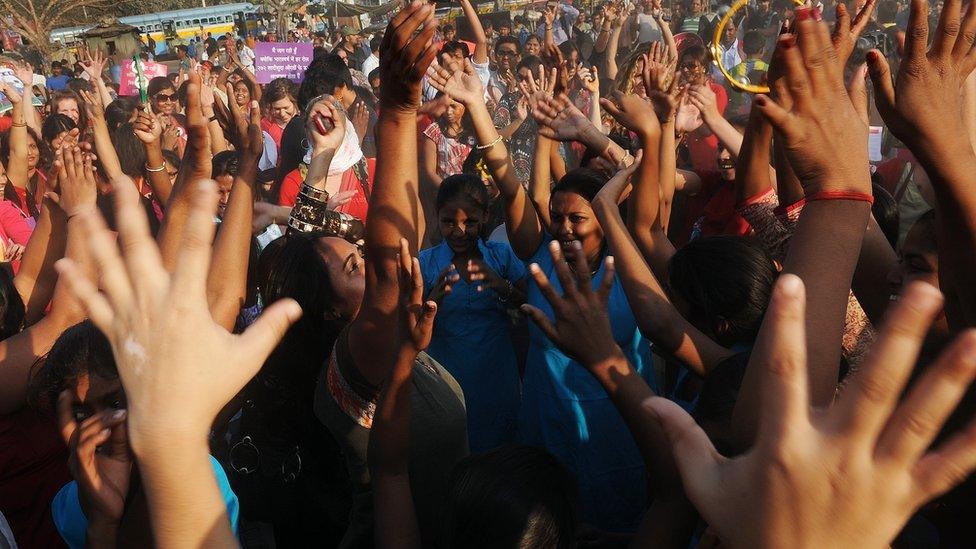Pollachi 'sex blackmail gang' victim's name revealed
- Published
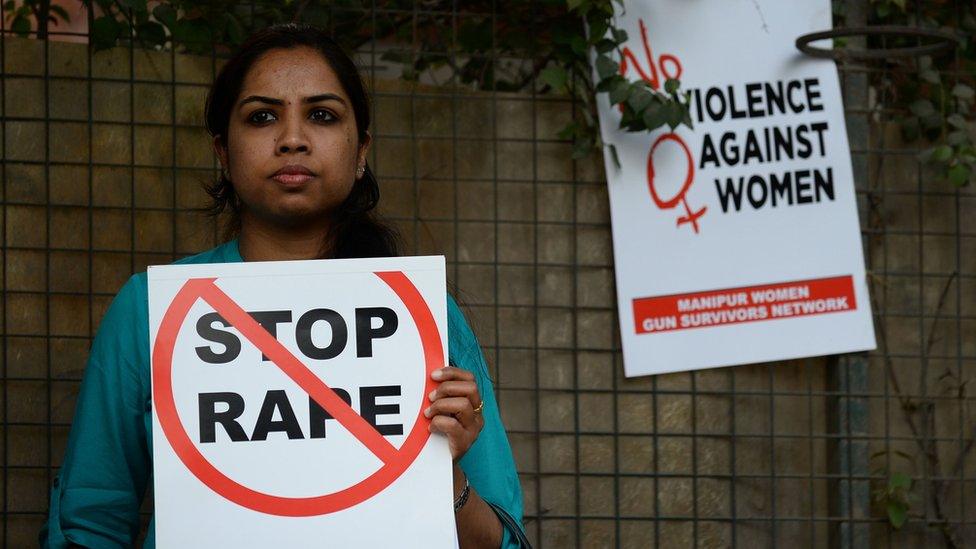
Sexual assault is a major problem in India. Pictured: A woman protesting in 2017
Activists fear victims of an alleged sex blackmail gang terrorising an Indian city will not come forward after the name of one survivor was made public by government officials.
The woman's name was contained in an official document published by the Tamil Nadu government.
It is illegal in India to report the name of a sexual assault victim.
Reports in local media suggest she could be just one of many victims of the alleged gang.
Police in the southern Indian town of Pollachi have been appealing for more victims to come forward since reports first emerged.
But the revelation of the student's name - in an official document handing the case to federal investigators - could deter women speaking out, warns Dr Swarna Rajagopalan, the founder of the Prajnya Trust, which focuses on gender violence.
"When it comes to sexual crimes, the tendency is still to blame the victim, unlike when you are robbed, mugged or stabbed," she told the BBC.
"When it comes to sexual crimes, people tend to recognise a crime, point to it and refer to it by the name of the victim. It becomes your primary identity. So this becomes a massive deterrent to reporting it."
The BBC has contacted the Tamil Nadu government for comment. A court has ordered the document be withdrawn, while any videos of the alleged victims must be taken off the internet, according to India's The News Minute, external.
What happened in Pollachi?
According to the official police document, the woman, a 19-year-old student, filed a complaint against the men on 24 February.
She told police the men - who she knew - trapped her in a car on 12 February, before removing her top without her permission and filming her on their mobile phones.
They then warned her if she did not cooperate, they would release the video.
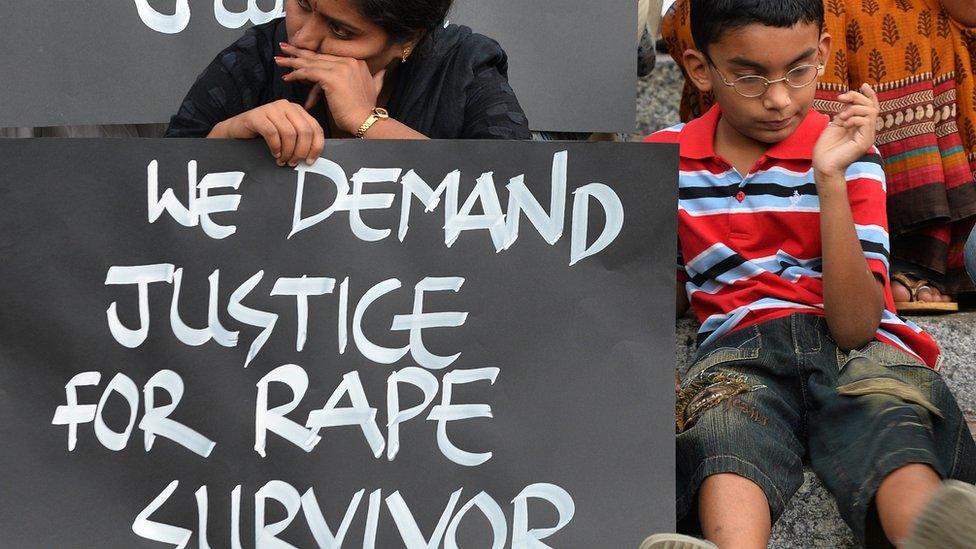
Some women fear coming forward. Pictured: A 2015 protest in Bangalore
Finally, they allegedly stole her $290 (£220) gold necklace.
The teenager only found the courage to tell her family what had happened almost two weeks later, after the men had repeatedly tried to extort money from her.
The official document says the woman's brother was later attacked by the men "with a threat to his life". This allegedly happened when he confronted the men.
The case has now been transferred from the local police to the federal Central Bureau of Investigation (CBI).
How many victims are there?
It has been claimed this attack was just one in a series carried out by the gang, with some local media suggesting they have been targeting women since 2013.
One man told The Hindu newspaper he allegedly reported the same group to police back in 2016.
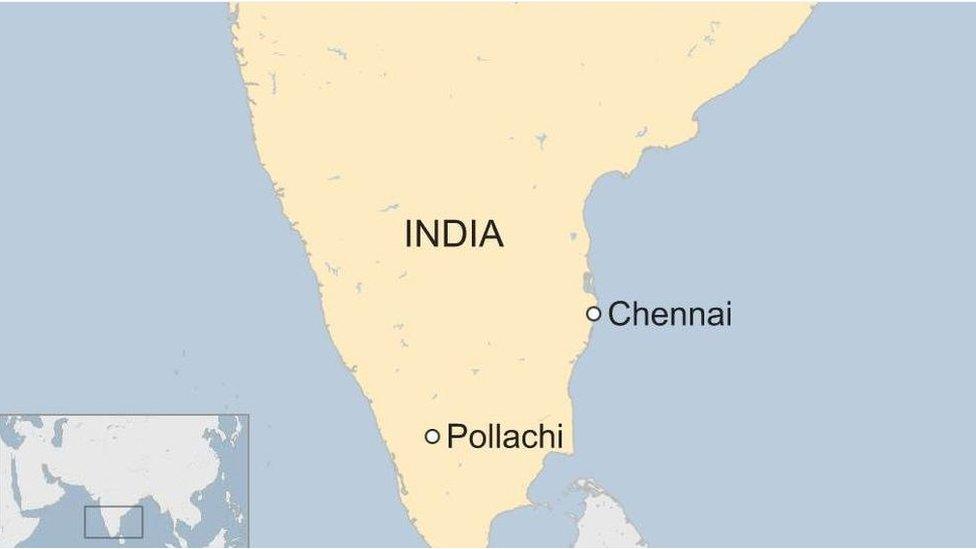
Police have reportedly found dozens of videos showing women being abused on the suspects' mobile phones.
Hundreds of people took to the streets earlier this week to demand the police take action, according to The Hindu, external.
Political links
It has emerged the suspects are linked to powerful political families in Tamil Nadu, which has led to fears the women will not get justice in the state.
Protesters demanded a committee of inquiry be set up, led by a female judge.
However, the timing of the case - with a general election just weeks away - has meant it has become a political issue.
Dr Rajagopalan said she was concerned at how candidates were using "this horrible incident to make political capital out of this, blaming each other without any regard for the victims".
"Imagine, what someone who is caught up in this, who is wondering whether or not to come forward, feels like to see what happened to her being discussed in the evening news everyday by someone who just wants to make a political point?" she told the BBC.
"When something like this happens in election season, what chance is there really for justice?"

Victim showed 'tremendous courage'
Geeta Pandey, India women and social affairs editor
It must have taken the 19-year-old woman tremendous courage to speak up and considering how some of the accused are connected to politically influential families, revealing her identity puts her - and her family - at considerable risk.
But this is not the first time a survivor's name has inadvertently been made public.
In the conservative, patriarchal Indian society where victims and survivors of sexual abuse have to deal with lifelong stigma, these repeated mistakes show the callousness with which the police and the authorities often treat cases of crimes against women.
The law expressly bars the authorities and the press from revealing a victim's identity and there have been several reminders from the Supreme Court in recent years to desist from doing so.
In fact, as recently as December, the top court said that police complaints in cases of rape and sexual assault must not be put in public domain exactly to avoid the sort of situation that has arisen now.
It's obvious the police and government in Tamil Nadu need to pay more attention to the top court rulings but, for the moment, they must ensure the safety of the survivor and her family.

- Published31 July 2018
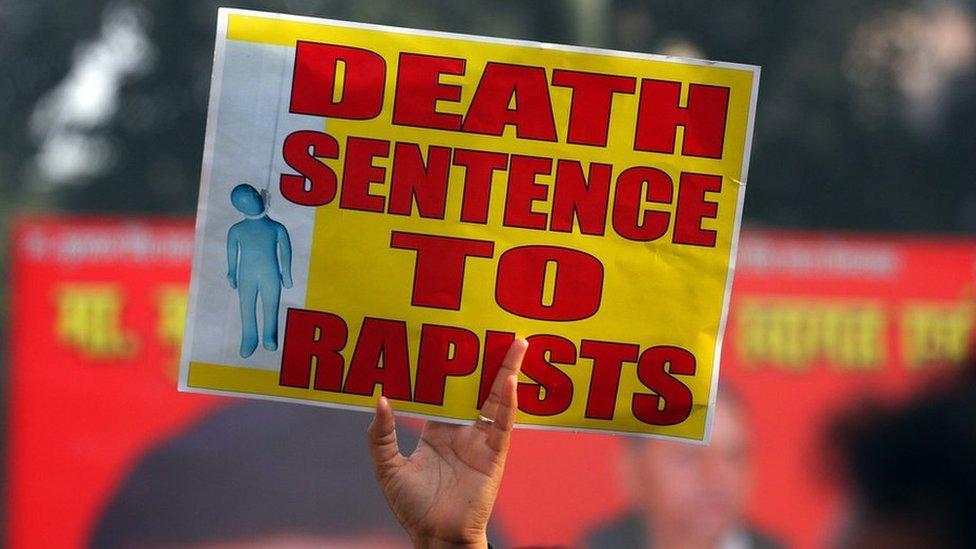
- Published17 April 2018
- Published28 December 2018
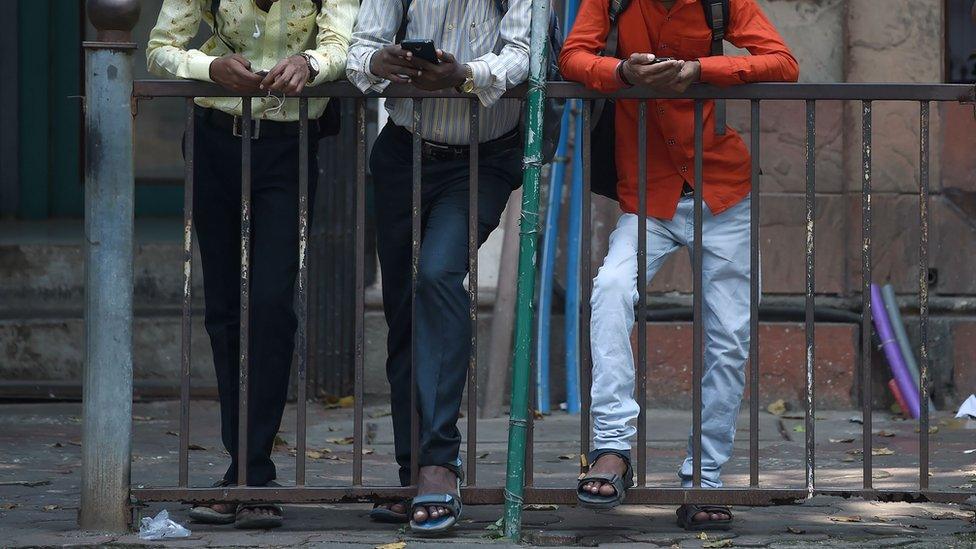
- Published16 December 2017
